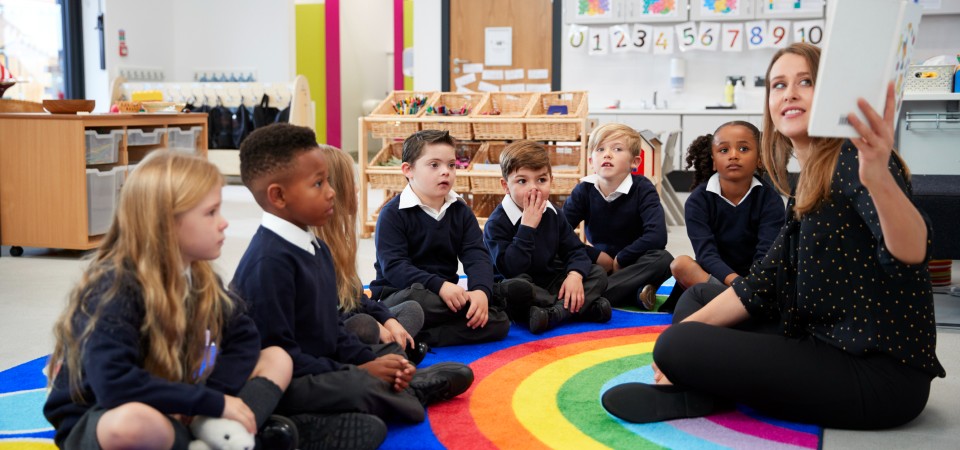The findings, based on the Minimum Income Standard (MIS) developed by Loughborough University’s Centre for Research in Social Policy (CRSP), show that the cost of essential education items – including food, uniform, transport, and learning materials – has increased by 16% for primary-aged children and a staggering 30% for secondary pupils over the past two years.
In comparison, inflation rose by just 8% and earnings by 12% during the same period.
The increases in costs are largely driven by a greater need for technology in order to support learning identified through new MIS research in 2024, alongside increases in the cost of food throughout the school day.
Key Cost Drivers
- Food across the school day is the largest cost pressure, with packed lunches and snacks alone costing families up to £846 annually for a secondary pupil.
- Technology is now considered essential, with a laptop deemed necessary for all secondary students to complete homework and revise for exams.
- Subject-related costs, such as design and technology materials, have also surged, with more items now considered necessary rather than optional.
- While uniform costs have slightly declined – particularly for primary pupils – they remain a significant burden, especially for families with multiple children.
Co-director of CRSP, Professor Matt Padley, said: “Our MIS research continues to describe and detail what parents agree is needed as a minimum for children to be able to participate fully in school life. A change over the past couple of years is the increasing importance of having access to appropriate technology at home so that pupils of all ages can complete home learning. Not being able to do this can have damaging short- and longer-term consequences for children and their educational outcomes.
“Beyond this, our MIS research highlights the importance of pupils having adequate food throughout the school day, so that they can concentrate in lessons, and of being able to go on educational trips, not being excluded from these opportunities to participate in school life.
“The minimum cost of education has risen substantially over the last couple of years, but this increase has not been matched by increases in household incomes, and the pressures on school and household finances persist. But there are things that can be done to ease these pressures for households, helping to ensure all children and young people are able to thrive rather than simply surviving in education.
“The recent announcement about increased breakfast club provision is welcome, but this does not go far enough in supporting those households most in need. Expanding free-school meal provision and helping more families with the cost of school uniform would be a good start. More fundamentally, rebuilding and investing in our social security system so that it adequately supports lower income families is critical in ensuring that all children and young people are able to make the most of their time in education."
Child poverty in the UK has hit a record 4.5 million, and that number is projected to rise to 4.8 million unless bold action is taken.
The research highlights the increasing financial strain on families – particularly those affected by the two-child limit policy, which removes £3,513 per child in Universal Credit from larger families.
Parents and pupils report skipping meals, missing school activities, and being penalised for not having the right equipment – all of which directly affect children’s ability to learn and participate in school life.
“I feel as though my children don’t get to participate often as I don’t have enough money. I feel very embarrassed and guilty to my children.” – Parent in England
“Food is a must, especially when you're in education, so I don't understand why children should have to pay for it.” – Secondary pupil in England
The findings come as the UK government prepares to publish its long-awaited child poverty strategy. Campaigners urge ministers to take decisive action to close the gap between family incomes and education costs by:
- Scrapping the two-child limit, which is the single biggest driver of rising child poverty.
- Expanding support with the cost of the school day – including free school meals, uniform grants, and technology provision.
CPAG’s report with a full breakdown of school costs for parents is HERE.
Parents may be available for interview via CPAG’s press office – 07816 909302
- The cost of a minimum education includes one residential trip in primary school and educational outings in secondary school, e.g. trips to the theatre, and one end-of-year reward trip.
- The MIS research is carried out at UK level, however, there is variation across the UK in terms of the support provided to families with school costs and government efforts to reduce costs. CPAG’s School Sums report (2023) outlines these differences.
- The Scottish Government has committed to scrapping the two-child limit policy for families in Scotland by 2026. However, families elsewhere will remain subject to the cut without UK government intervention.
ENDS
